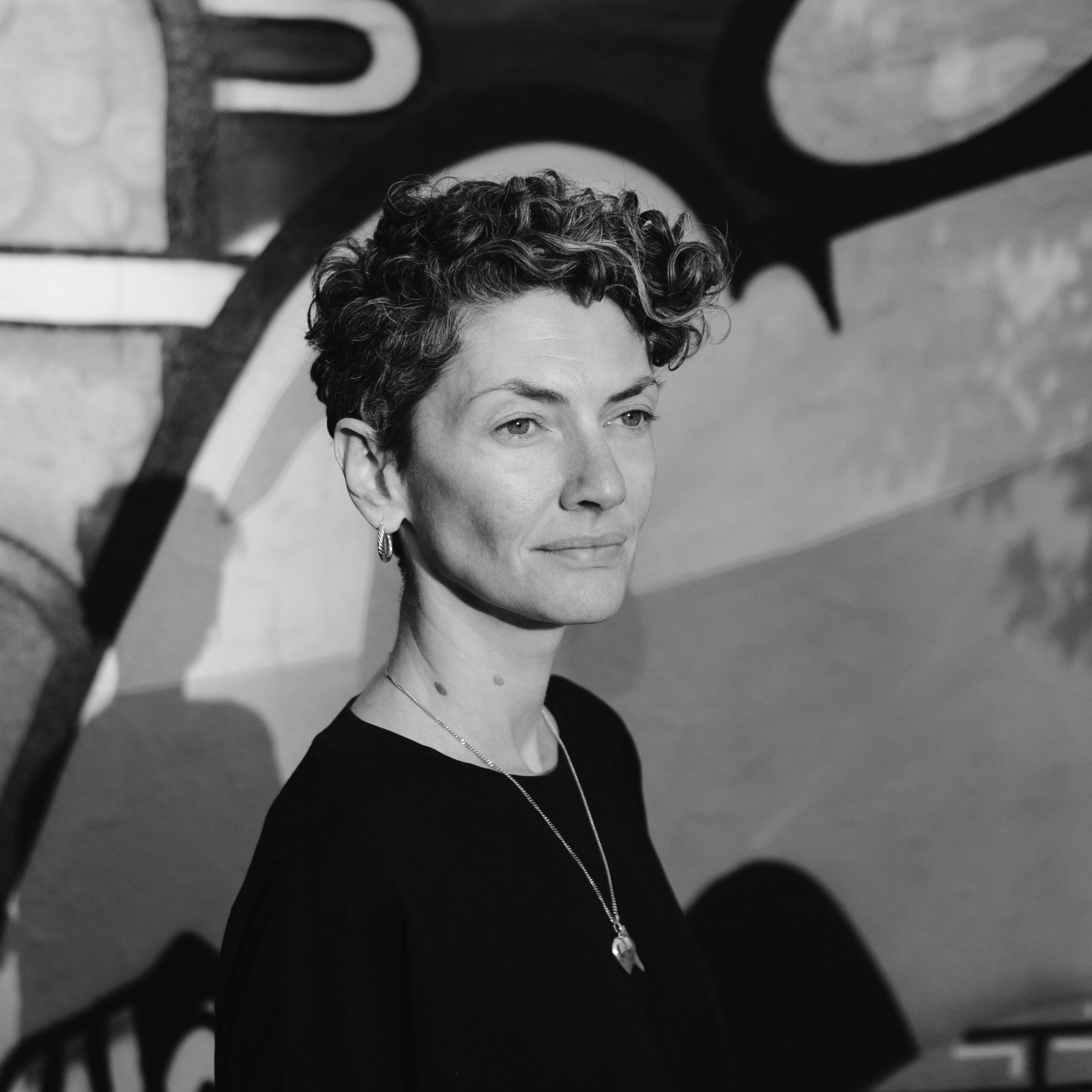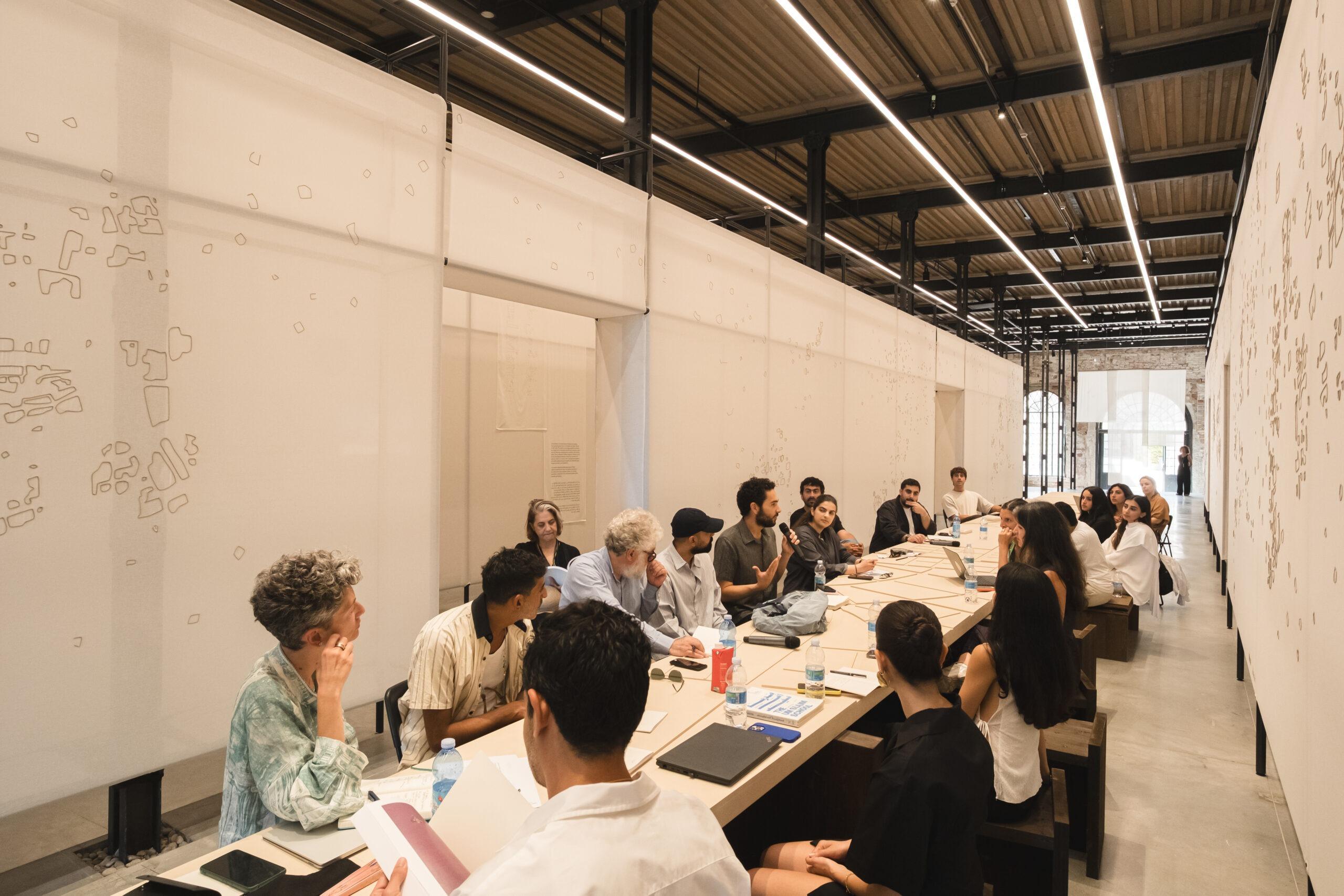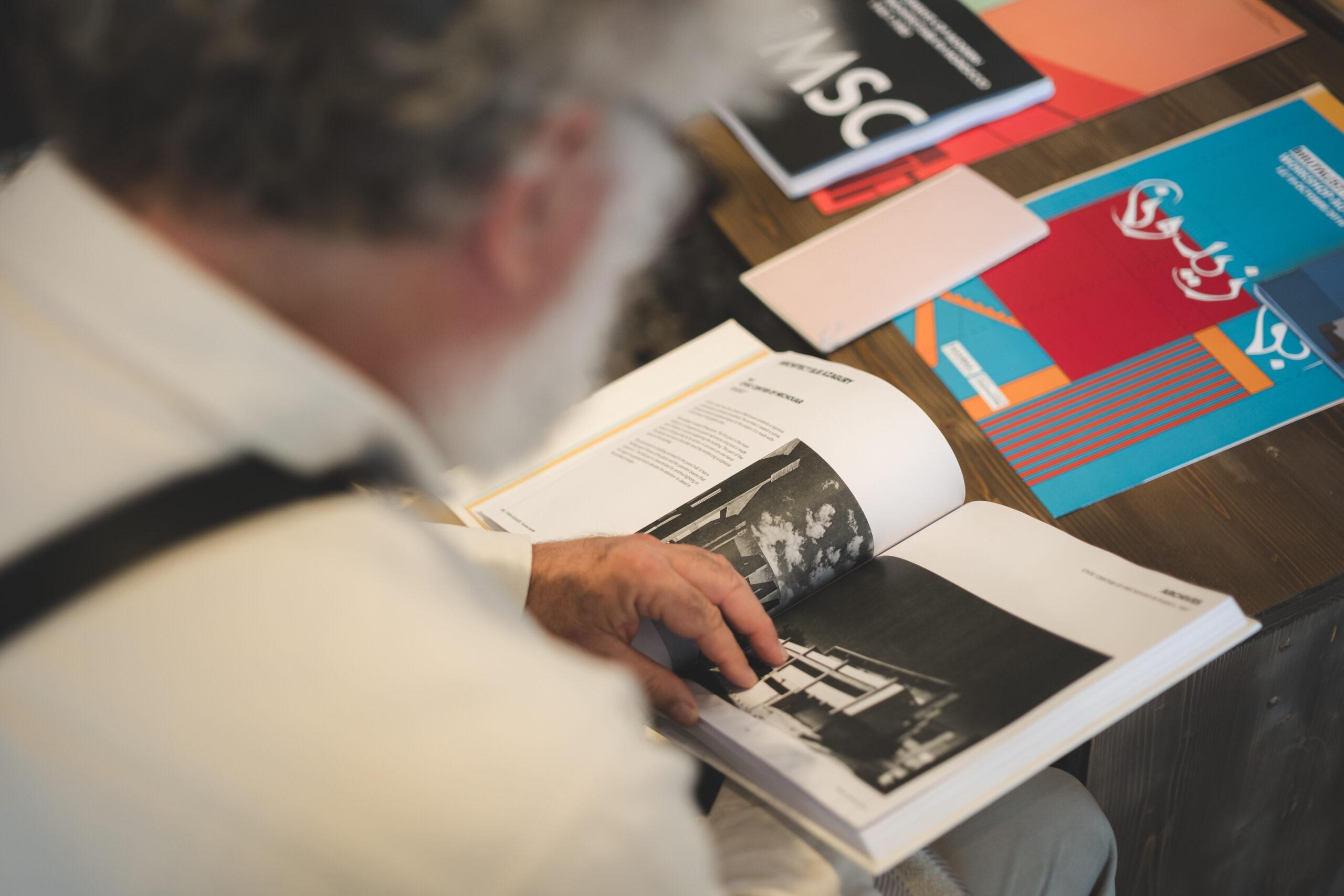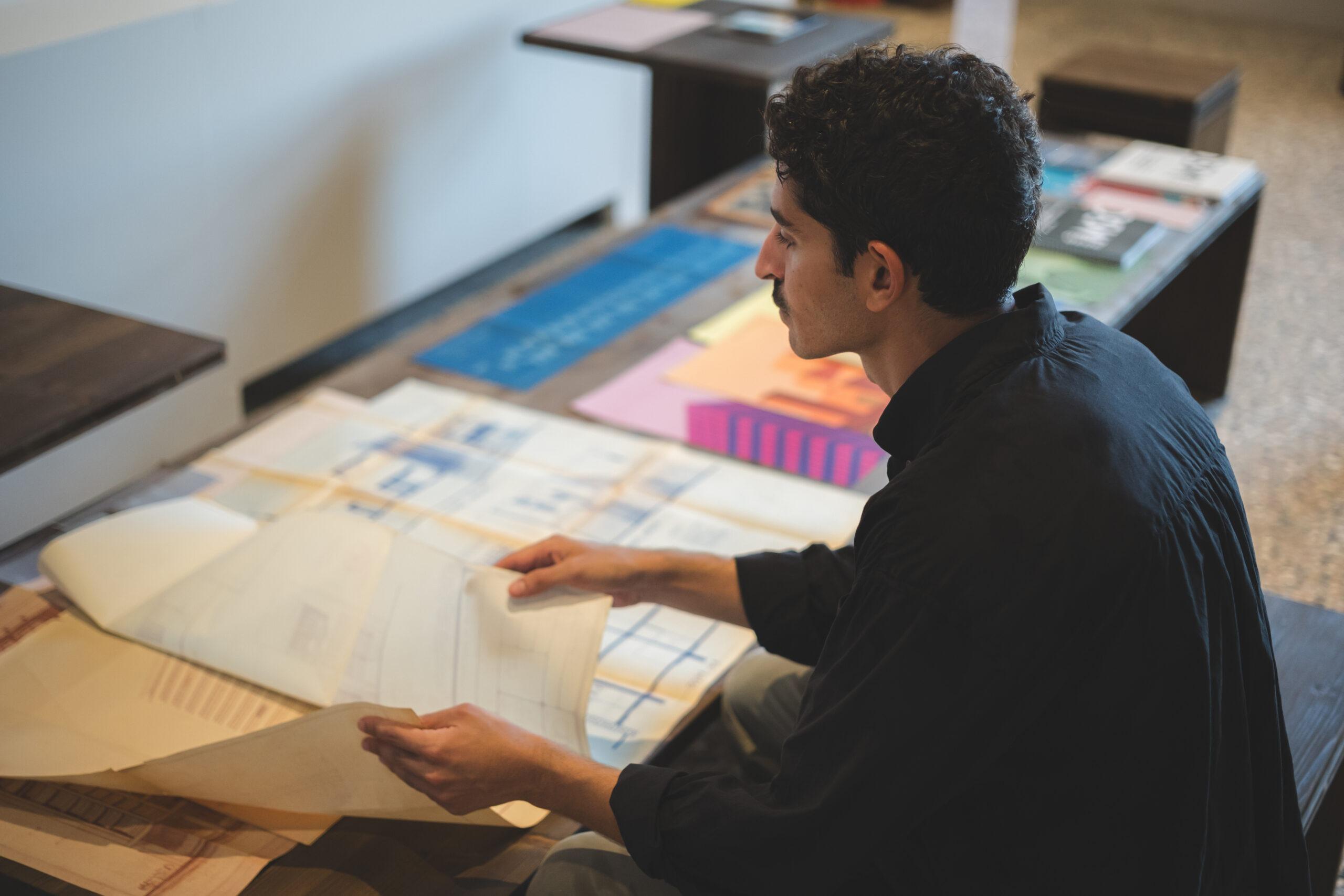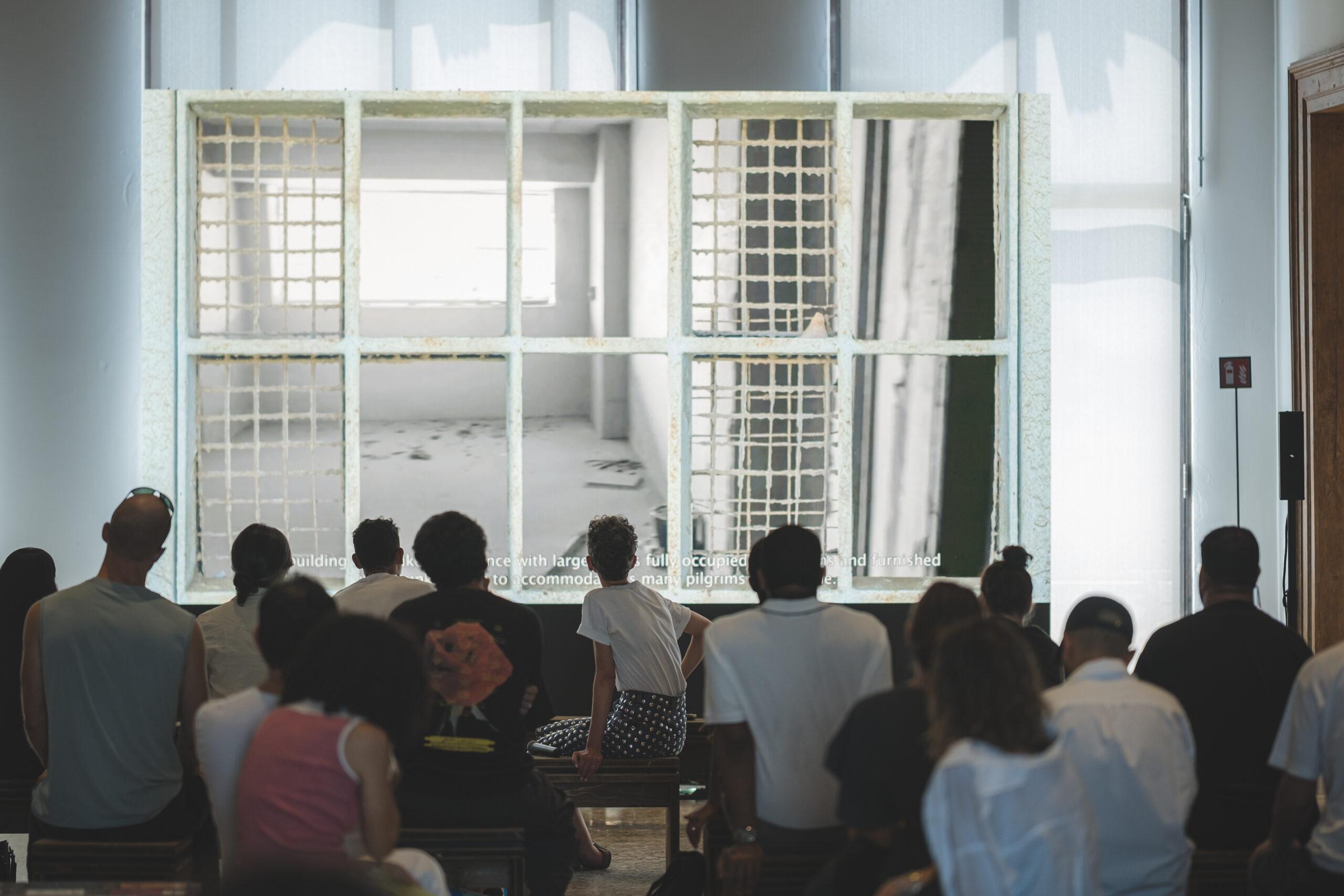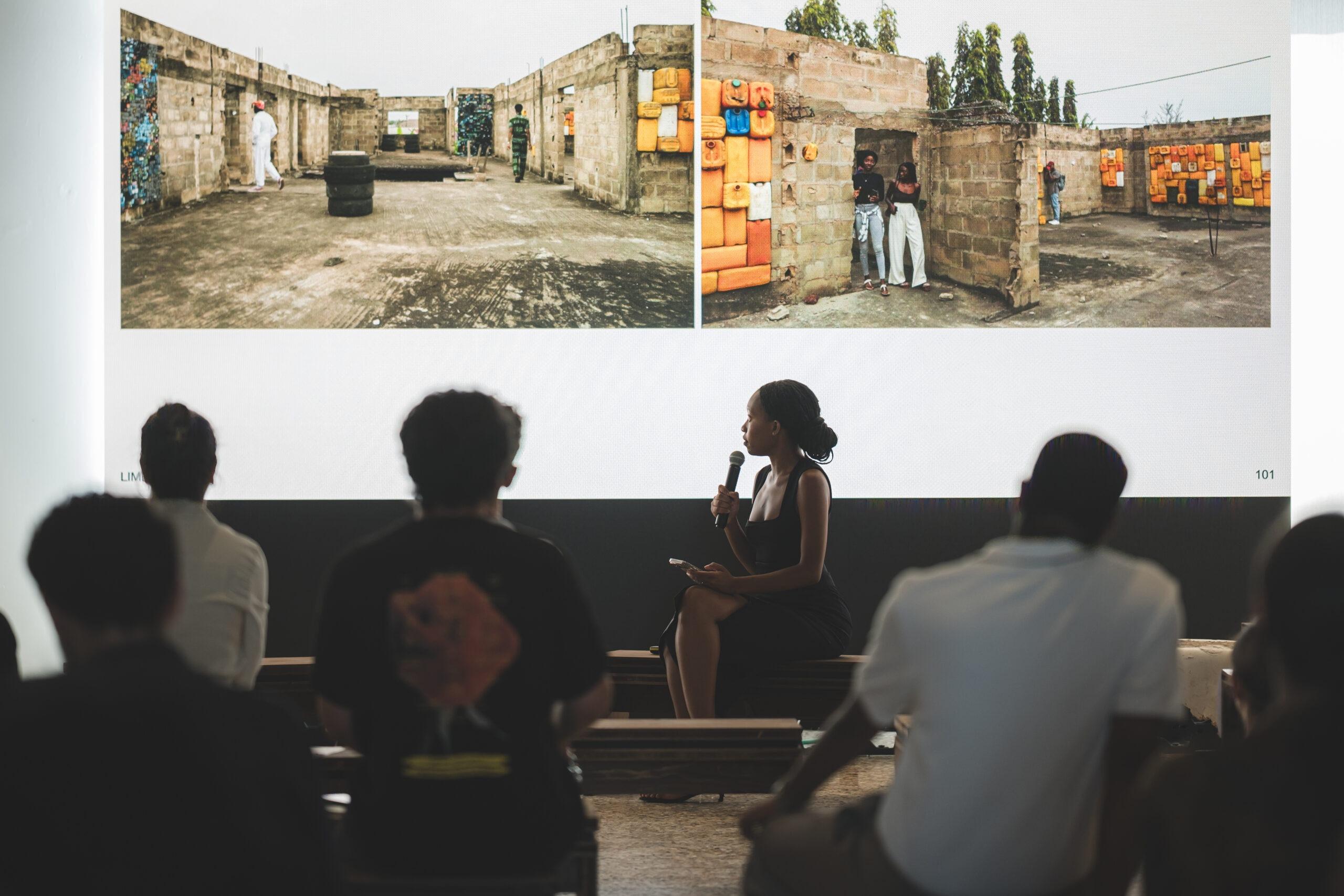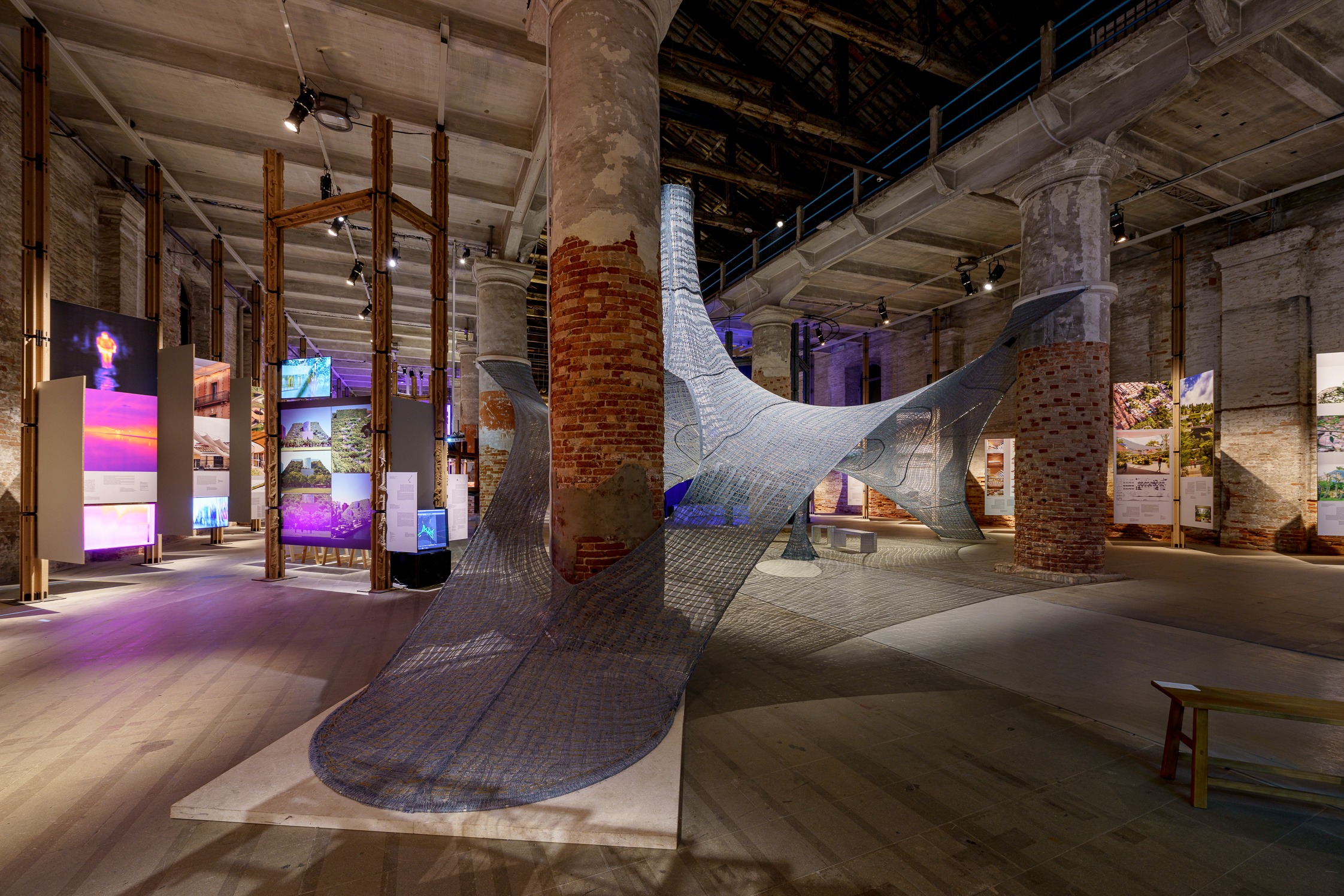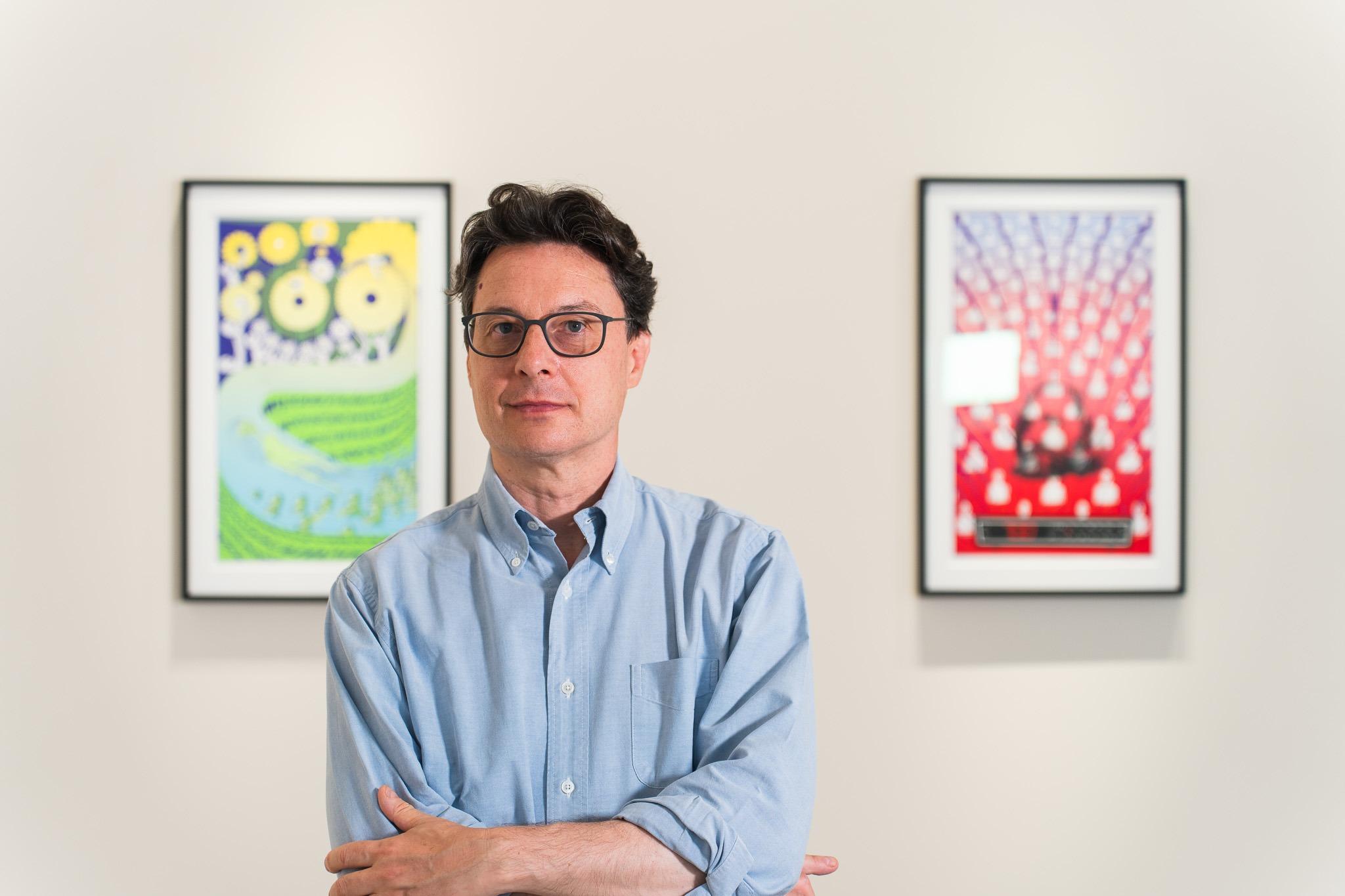How to address the challenges of the 21st century by combining educational methodologies and architecture? This question is the starting point for the public program of the National Pavilion of Saudi Arabia at the 19. Venice Architecture Biennale, whose external sessions will be hosted, until November 2025, by Palazzo Diedo ‒ Berggruen Arts & Culture. Beatrice Leanza, curator of the program, describes its origins and purpose
The Um Slaim School and Future Pedagogies in Architecture
Titled BUILT/UNBUILT ‒ Relational Pedagogies and Participatory Spatial Practice, this public program is a constituent component of the Saudi participation to the 2025 Biennale Architettura in Venice which puts front and center the thorny question of how to reshape educational approaches and methodologies in architecture that can respond to 21st challenges, with a particular interest in exploring forms of knowledge that emerge from the context of Saudi Arabia, the Gulf region and the wider cultural ramifications that connect to the realities of the Global South.
This durational aspect of the project substantiates a co-creation process tasked to establish a new pedagogical initiative in Riyadh post-Biennale, i.e. the titular The Um Slaim School, which foregrounds a novel mode of understanding architecture’s role and purpose in today/s world rooted in community-making, civic participation and a holistic approach that supports and connects with transnational dialogue about generational experiences engaging in practice-led pedagogies and research-centered methodologies on a global expanse.
We kicked off this co-creation process in Riyadh in February 2025 whose thematic explorations are reflected and further expanded in a series of closed-door and public sessions in Venice: Archiving Otherwise – Cocreating Public Archives and Collective Knowledge; Material Ecologies – Material Heritage and Rituals of Mitigation, Repair, and Reuse; Pedagogies of Proximity and Relation – Prototyping Alternative Education; Building Participatory Infrastructures – Hyperlocal Practices and Connective Organizations.
These intense 3-day sessions generatively produce collective inputs, reflections, shared agendas and methodologies that would shape the future school while also building novel connections and an emergent actionable network of experiences to cement novel learning paths reconnecting to history, socio-ecological frameworks of development attuned to homeostatic principles of reciprocation and coexistence, nature-based methodologies harboured in ancestral and traditional knowledge but also ways of reconfiguring modern and contemporary urban narratives beyond established canons, histories of colonialism and underrepresentation.
The program is in itself an experimental testing ground for the future school’s mode of sharing and producing knowledge, and one that reflects at the same time on the contemporary significance, role and function of large scale cultural platforms of which the Biennale is one of the best-reputed examples. Utilizing this opportunity ‒ its visibility, outreach and professional capacity ‒ to ensure the project of the pavilion can outlast its limited manifestation over the Biennale’s 6 months period and build for a collectivity of future practitioners, was a strategic approach established from the start.
A second publication co-published by Mousse and Kapth Books and edited by me and Maryam Alnoaimi who is co-leading the program with me, will feature over 50 contributions by individuals, collectives and initiatives, with the hope that the book too becomes an instrument for research and a proof of concept for the establishment of the school.
Beatrice Leanza
https://saudipavilion.org/built-unbuilt/
BIO
Beatrice Leanza is a cultural strategist, museum director, and critic with expertise in design and arts across Asia and beyond. She earned an MA in Asian Studies from Ca’ Foscari University, Venice, specializing in contemporary Chinese art, and spent seventeen years in Beijing shaping the Chinese creative scene. Leanza has served as executive director of MAAT – Museum of Art, Architecture, and Technology (Lisbon), director of mudac – Museum of Contemporary Design and Applied Arts (Lausanne), and creative director of Beijing Design Week, where she launched the Baitasi Remade urban regeneration program. She also co-founded The Global School, China’s first independent institute for design and creative practice.
Her international projects include Across Chinese Cities at the Venice Architecture Biennale (2014, 2016, 2018) and Visual Natures at MAAT (2020–2022). A European Young Leader since 2018, she serves on the advisory board of Design Trust (Hong Kong). Her book The New Design Museum (Park Books, 2025) explores institutional practices in design and architecture addressing twenty-first-century challenges.


Related Articles




